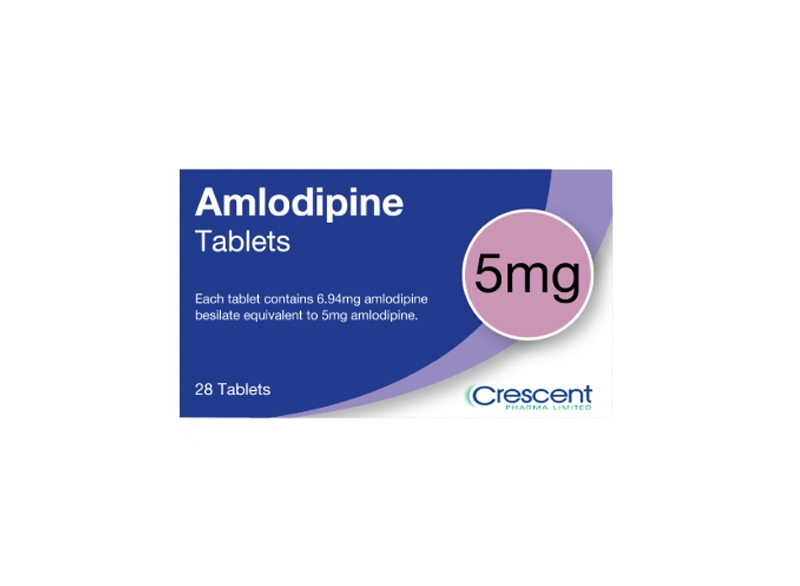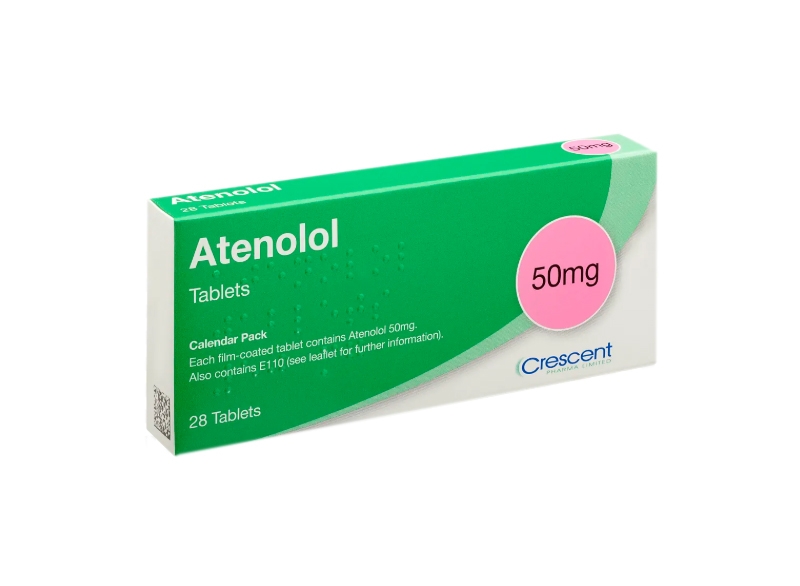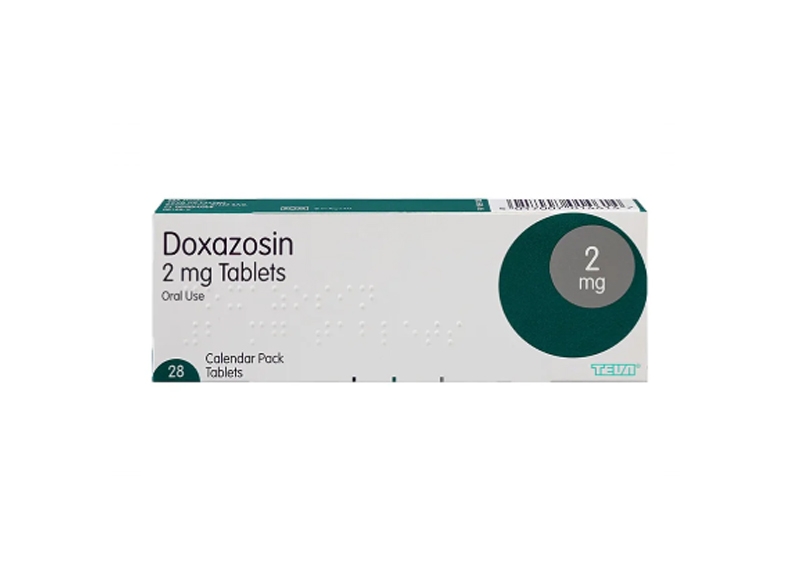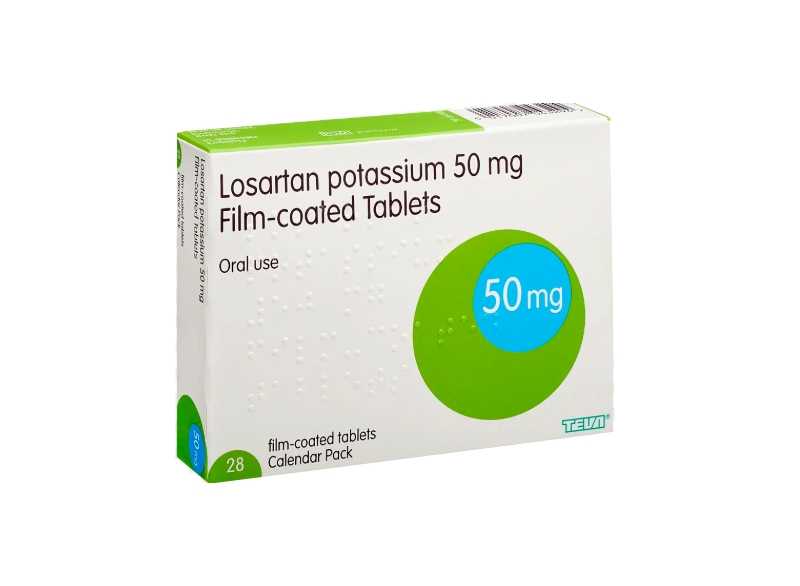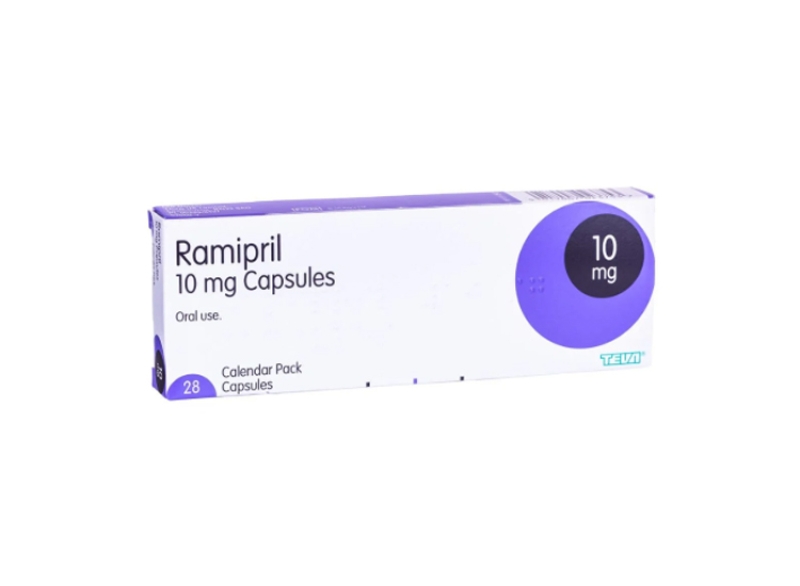How to Order ? Simple.
-

1.
Select Treatment
Choose from our treatment options or speak to the in-store pharmacist for advice
-

2.
Complete Medical Questionnaire
Complete our free online medical consultation to be reviewed by our Clinical Team
-

3.
Collect Medication from Local Pharmacy
We will notify you when your medication is ready for collection
Advice for Hypertension
Normal blood pressure is generally considered to be below 120/80 mmHg, while hypertension is categorized into stages. Elevated blood pressure ranges from 120-129 systolic and less than 80 diastolic, while Stage 1 hypertension is defined as having a systolic pressure of 130-139 mmHg or diastolic pressure of 80-89 mmHg. Stage 2 hypertension occurs when systolic pressure is 140 mmHg or higher, or diastolic pressure is 90 mmHg or higher, and hypertensive crisis is indicated by a systolic pressure above 180 mmHg or diastolic above 120 mmHg, requiring immediate medical attention.
Primary hypertension, the most common form, accounts for about 90-95% of cases, and its exact cause is often unknown, though it is related to genetic, environmental, and lifestyle factors. In contrast, secondary hypertension results from an underlying health condition, such as kidney disease, hormonal disorders, or the use of certain medications.
Several risk factors contribute to the development of hypertension, including age, family history, obesity, lack of physical activity, excessive alcohol consumption, and high salt intake. Hypertension is often referred to as a "silent killer" because it frequently has no noticeable symptoms, yet it can lead to serious complications, such as heart disease, stroke, kidney damage, and vision loss.
Management of hypertension typically involves lifestyle changes, such as adopting a healthier diet, increasing physical activity, losing weight, and reducing salt and alcohol intake. Medications may also be prescribed, including diuretics, ACE inhibitors, beta-blockers, and calcium channel blockers, depending on the individual's specific health needs. Regular monitoring and consultation with healthcare providers are essential in managing hypertension effectively and reducing the risk of associated health complications.
Hypertension, or high blood pressure, is often referred to as a "silent killer" because it typically does not present noticeable symptoms. However, in some cases, individuals may experience specific symptoms, especially when blood pressure reaches dangerously high levels or when associated with significant health complications. Here’s a detailed overview of symptoms and signs associated with hypertension:
Common Symptoms
1. Headaches: Some people may experience persistent headaches, particularly when blood pressure levels are extremely high (hypertensive crisis).
2. Dizziness or Lightheadedness: Individuals may feel dizzy or faint, particularly when standing up quickly or after extensive physical activity.
3. Nosebleeds: While not common in everyone with high blood pressure, severe hypertension may lead to frequent nosebleeds.
4. Blurred Vision: Elevated blood pressure can affect vision by damaging the blood vessels in the retina, leading to blurred or impaired vision (hypertensive retinopathy).
5. Nausea: Some individuals may feel nauseous or have an upset stomach due to elevated blood pressure levels.
6. Fatigue: Chronic high blood pressure can lead to general fatigue and a feeling of exhaustion, potentially due to strain on the heart.
Severe Symptoms
In cases of hypertensive crisis, which is a medical emergency, symptoms can become more pronounced and may include:
1. Severe Headaches: Intense and severe headaches that may feel different from ordinary headaches.
2. Shortness of Breath: Difficulty breathing, which can occur if high blood pressure compromises heart function or causes pulmonary edema.
3. Chest Pain: Pain or discomfort in the chest area may indicate heart-related issues due to increased strain on the heart.
4. Confusion or Altered Mental Status: Experiencing confusion, disorientation, or changes in mental status as a result of severely elevated blood pressure affecting brain function.
5. Severe Anxiety: Sudden feelings of anxiety or panic can accompany a high blood pressure episode or hypertensive crisis.
6. Seizures: In extreme cases, very high blood pressure can lead to seizures as a result of hypertensive encephalopathy.
Complications Related to Hypertension
While not direct symptoms, complications that arise from untreated or poorly managed hypertension can lead to significant health issues, including:
1. Heart Disease: Hypertension can lead to coronary artery disease, heart failure, or left ventricular hypertrophy, which may eventually result in chest pain or heart attacks.
2. Stroke: High blood pressure increases the risk of stroke by causing damage to blood vessels in the brain.
3. Kidney Damage: Chronic high blood pressure can lead to kidney disease or failure, potentially presenting with symptoms such as swelling or changes in urination.
4. Vision Loss: Hypertensive retinopathy can lead to vision issues or even blindness due to damage to the retina.
5. Aneurysms: Increased blood pressure can lead to weakened blood vessels, contributing to the risk of aneurysms.
Many individuals with hypertension remain asymptomatic, which is why regular monitoring is vital for early detection and management. Symptoms associated with hypertension often correlate with severe elevations in blood pressure or the development of related health complications. If any severe symptoms or concerns arise, seeking immediate medical attention is crucial, as early intervention is key to preventing serious health consequences. Regular check-ups and lifestyle modifications play a significant role in managing blood pressure effectively.
Hypertension, or high blood pressure, can result from a combination of genetic, environmental, and lifestyle factors. The causes can generally be categorized into two main types: primary (essential) hypertension and secondary hypertension.
1. Primary (Essential) Hypertension
Primary hypertension is the most common type, accounting for approximately 90-95% of all cases. The exact cause is often unknown but arises from a complex interplay of several factors, including:
- Genetic Factors: A family history of hypertension can increase the likelihood of developing the condition. Certain genetic variations may affect how the body regulates blood pressure.
- Age: Blood pressure tends to rise with age due to decreased elasticity of blood vessels and increased vascular stiffness.
- Gender: Men are generally at higher risk for developing hypertension at an earlier age, though the risk in women increases after menopause.
- Unhealthy Diet: A diet high in salt (sodium), saturated fats, and cholesterol can contribute to hypertension. Excessive sodium intake can lead to fluid retention and increased blood pressure.
- Obesity: Excess body weight increases the strain on the heart and can lead to higher blood pressure. Fat tissue can produce hormones and substances that increase blood pressure.
- Physical Inactivity: A sedentary lifestyle is linked to weight gain and higher blood pressure. Regular physical activity helps maintain a healthy weight and lowers blood pressure.
- Excessive Alcohol Consumption: Heavy drinking can raise blood pressure, and binge drinking can cause spikes in blood pressure levels.
- Chronic Stress: Long-term stress may contribute to hypertension by increasing heart rate and causing blood vessels to constrict.
2. Secondary Hypertension
Secondary hypertension occurs due to an underlying health condition, which can include:
- Kidney Disease: Conditions like chronic kidney disease can affect the kidneys' ability to regulate fluid balance and blood pressure.
- Hormonal Disorders: Disorders such as hyperthyroidism, Cushing’s syndrome, and primary aldosteronism can cause imbalances in hormones that regulate blood pressure.
- Sleep Apnea: This condition leads to repeated interruptions in breathing during sleep, which can increase blood pressure and cause cardiovascular problems.
- Certain Medications: Medications such as corticosteroids, oral contraceptives, decongestants, and some pain relievers can contribute to elevated blood pressure.
- Vascular Conditions: Conditions affecting the blood vessels, such as coarctation of the aorta, can lead to hypertension.
- Drugs and Substances: Illicit drugs like cocaine and amphetamines can cause severe increases in blood pressure.
Hypertension is influenced by a combination of genetic and environmental factors, with primary hypertension being the most common form. Secondary hypertension is often associated with underlying medical conditions or medication use. Understanding the causes of hypertension is crucial for prevention and management strategies, as lifestyle modifications and treatment of underlying health issues can significantly impact blood pressure control. Regular screening and consultation with healthcare providers play an essential role in identifying and managing hypertension effectively.
At Pharmacinta, we provide Antpertensive medications that are vital for managing high blood pressure (hypertension) and reducing the risk of serious complications, such as heart disease and stroke. These medications work through various mechanisms to lower blood pressure and improve cardiovascular health.
Diuretics, also known as "water pills," help the body eliminate excess sodium and water, leading to reduced blood volume and lower blood pressure. Common examples include hydrochlorothiazide and furosemide.
Angiotensin-Converting Enzyme (ACE) inhibitors block the conversion of angiotensin I to angiotensin II, promoting vasodilation and reducing blood pressure. Examples of ACE inhibitors include lisinopril and enalapril.
Angiotensin II Receptor Blockers (ARBs) prevent angiotensin II from constricting blood vessels, leading to lower blood pressure; examples include losartan and valsartan.
Calcium channel blockers prevent calcium from entering the heart and blood vessel smooth muscle cells, causing relaxation and decreased blood pressure. Amlodipine and diltiazem are commonly used calcium channel blockers.
Beta-blockers reduce heart rate and the strength of heart contractions by blocking adrenaline's effects, which lowers blood pressure. Metoprolol and atenolol are well-known beta-blockers. Alpha-blockers work by preventing blood vessel constriction, leading to relaxation and widening of blood vessels, with examples like doxazosin.
Combination medications may be prescribed to enhance blood pressure control, and these can simplify treatment regimens. While antihypertensives are effective, lifestyle modifications such as a heart-healthy diet, regular exercise, and weight management are key to optimizing blood pressure control.
Regular monitoring and communication with healthcare providers are essential to tailor antihypertensive treatment to individual needs and ensure effective management of hypertension.
In addition to antihypertensive medications, various other treatments and lifestyle modifications can help manage hypertension effectively. Here are some key options:
1. Lifestyle Modifications
- Dietary Changes: Adopting a heart-healthy diet, such as the DASH (Dietary Approaches to Stop Hypertension) diet, which emphasizes fruits, vegetables, whole grains, and lean proteins while reducing salt intake.
- Reducing Sodium Intake: Limiting sodium in the diet to less than 2,300 mg per day (or ideally 1,500 mg for greater blood pressure reduction) can significantly lower blood pressure.
- Regular Physical Activity: Engaging in moderate-intensity exercise, such as brisk walking, for at least 150 minutes per week can help lower blood pressure and improve overall cardiovascular health.
- Weight Management: Maintaining a healthy weight or losing excess weight can have a significant impact on lowering blood pressure.
2. Stress Management
- Mindfulness and Relaxation Techniques: Practices such as meditation, deep breathing exercises, yoga, and progressive muscle relaxation can help reduce stress and lower blood pressure.
- Mindfulness-Based Stress Reduction (MBSR): Participating in structured programs that promote mindfulness can help individuals manage stress effectively.
3. Alcohol and Tobacco Control
- Limiting Alcohol Consumption: Drinking alcohol in moderation can help manage blood pressure levels. Recommendations generally suggest limiting alcohol to no more than one drink per day for women and two drinks per day for men.
- Quitting Smoking: Smoking cessation improves overall heart health and can significantly lower blood pressure over time.
4. Monitoring Blood Pressure
- Home Monitoring: Regularly checking blood pressure at home can provide valuable information and help individuals stay engaged in their treatment plans. It can also help identify patterns and potential triggers.
- Regular Check-Ups: Regular visits to healthcare providers for blood pressure monitoring and to discuss treatment plans are essential for effective management.
5. Alternative Therapies
- Acupuncture: Some individuals find that acupuncture may help reduce hypertension and promote relaxation.
- Herbal Supplements: Certain herbal supplements, such as garlic extract, omega-3 fatty acids, or coenzyme Q10, have shown potential in lowering blood pressure. However, individuals should consult with healthcare providers before starting any supplements.
6. Support Groups
- Joining a support group or participating in community programs can provide emotional support and motivate individuals to adhere to lifestyle changes and treatment plans.
7. Medical Procedures
In cases where hypertension is resistant to medication or when specific underlying conditions are identified, more invasive options may be considered:
- Renal Denervation: This procedure involves disabling nerves in the kidneys that contribute to high blood pressure, typically performed in cases of resistant hypertension.
- Endovascular Procedures: For certain vascular conditions contributing to hypertension, surgical interventions may be necessary.
Managing hypertension requires a comprehensive approach that goes beyond medication. Lifestyle modifications, stress management techniques, regular monitoring, and support systems are crucial for effective blood pressure control. Collaborating with healthcare providers can ensure that individuals develop a personalized treatment plan that addresses their unique health needs and helps reduce the risk of hypertension-related complications.
Frequently Asked Questions
There are two main types of hypertension: primary (essential) hypertension and secondary hypertension. Primary hypertension, which accounts for the majority of cases, develops gradually over many years without a specific identifiable cause. Secondary hypertension is caused by an underlying condition, such as kidney disease, hormonal disorders, or certain medications, and often appears suddenly.
Hypertension is diagnosed through routine blood pressure measurements taken with a sphygmomanometer. A healthcare provider will typically check your blood pressure on multiple occasions and across different settings. For a definitive diagnosis, readings are taken at least twice on separate days. Diagnosis may also include additional tests to rule out underlying conditions or complications, such as blood tests, urinalysis, and electrocardiogram (ECG) assessments.
Untreated hypertension can lead to serious health complications, including heart disease, stroke, kidney damage, and vision loss. Chronic high blood pressure can cause the arteries to become thickened and damaged, increasing the risk for these conditions and leading to heart failure and other cardiovascular issues.
Managing hypertension typically involves lifestyle modifications and, when necessary, medication. Lifestyle changes may include adopting a heart-healthy diet low in salt (like the DASH diet), engaging in regular physical activity, maintaining a healthy weight, avoiding tobacco products, and limiting alcohol intake. In some cases, healthcare providers may prescribe antihypertensive medications, such as diuretics, ACE inhibitors, angiotensin II receptor blockers (ARBs), beta-blockers, or calcium channel blockers.
Effective lifestyle changes include eating a balanced diet rich in fruits, vegetables, whole grains, and lean proteins while reducing sodium intake. Regular aerobic exercise, such as brisk walking, cycling, or swimming for at least 150 minutes per week, can improve heart health and lower blood pressure. Maintaining a healthy weight, managing stress through relaxation techniques, avoiding excessive alcohol consumption, and not smoking are all crucial for blood pressure management.
You should consult a healthcare provider if you have consistently elevated blood pressure readings, experience symptoms that may indicate hypertension or other cardiovascular issues, or have a family history of hypertension-related complications. It's also advisable to discuss any concerns about lifestyle changes or medications prescribed for managing blood pressure.
If you miss a dose of your blood pressure medication, take it as soon as you remember. However, if it is almost time for your next dose, skip the missed dose and resume your regular schedule. Do not take two doses to make up for a missed one, as this can lead to an unsafe drop in blood pressure or other complications. If you have questions or are unsure about what to do, consult your healthcare provider for guidance.
The frequency of blood pressure monitoring can vary depending on the individual's diagnosis and treatment plan. If you have been diagnosed with hypertension, your healthcare provider may recommend checking your blood pressure at home daily or several times a week. Regular monitoring helps track how well your treatment plan is working and whether adjustments are needed. If your blood pressure is well-controlled, your healthcare provider may suggest less frequent checks.
Untreated hypertension can lead to serious and potentially life-threatening complications, including: ● Heart disease: Hypertension increases the risk of heart attacks and heart failure due to the strain it places on the heart. ● Stroke: High blood pressure can damage blood vessels in the brain, leading to a stroke. ● Kidney damage: Hypertension can impair kidney function and increase the risk of kidney disease. ● Vision loss: Hypertensive retinopathy can occur, damaging the blood vessels in the eyes and leading to vision problems. ● Metabolic syndrome: This cluster of conditions, including increased waist circumference, high blood pressure, high blood sugar, and abnormal cholesterol, increases the risk of cardiovascular disease and diabetes.
Hypertension can be a lifelong condition for many individuals. However, with appropriate management, including medication and lifestyle changes, many people can achieve good control of their blood pressure. Some individuals may be able to achieve normal blood pressure levels and maintain them with lifestyle modifications alone. Regular follow-up with a healthcare provider is essential for managing and monitoring the condition.
Yes, chronic stress can contribute to elevated blood pressure. While temporary stress may cause a short-term increase in blood pressure, prolonged stress can lead to unhealthy coping strategies such as poor diet, physical inactivity, smoking, or excessive alcohol consumption, which can subsequently raise blood pressure. Practicing stress management techniques, such as mindfulness, deep breathing, exercise, or engaging in hobbies, can help mitigate the effects of stress on blood pressure.
Several dietary approaches can help lower blood pressure. The Dietary Approaches to Stop Hypertension (DASH) diet emphasizes the consumption of fruits, vegetables, whole grains, lean proteins, and low-fat dairy while reducing sodium intake. Other heart-healthy diets include the Mediterranean diet, which is rich in healthy fats, fish, nuts, and fresh produce. Limiting processed foods, added sugars, and saturated fats is also beneficial.
Yes, regular physical activity is beneficial and is often recommended for individuals with hypertension. Engaging in moderate aerobic exercise, such as walking, cycling, or swimming, for at least 150 minutes per week can help lower blood pressure and improve overall cardiovascular health. However, it is important to consult a healthcare provider before starting any new exercise program, especially if hypertension is uncontrolled or if there are other underlying health conditions.
Some dietary supplements, such as omega-3 fatty acids, potassium, magnesium, and certain herbal remedies (like garlic), have shown promise in supporting blood pressure management. However, it's important to discuss the use of any supplements with a healthcare provider, as they may interact with prescribed medications or be unsuitable for certain individuals. A balanced diet is generally the best way to obtain necessary nutrients.
If you find that your blood pressure readings are consistently high, it is important to consult your healthcare provider. They may recommend lifestyle modifications, adjust your current medication regimen, or evaluate for any underlying conditions contributing to the increase. Regular follow-ups will ensure appropriate management and reduce the risk of complications.
Blood pressure tends to increase with age due to the natural stiffening of blood vessels and an increased prevalence of certain health conditions. Older adults are at higher risk of developing hypertension, making regular monitoring even more important for this population.
Yes, home blood pressure monitoring devices, including automatic cuff-style monitors and wrist monitors, are widely available and provide a convenient way to check blood pressure regularly.
Selecting the appropriate blood pressure medication is based on several factors, including your overall health, the severity of your hypertension, any underlying health conditions, and potential interactions with other medications you may be taking. Your healthcare provider will evaluate these factors and may adjust your treatment plan as needed.
The time it takes for blood pressure medications to be effective varies by the type of medication. Some medications, like diuretics and ACE inhibitors, can lower blood pressure relatively quickly (within a few hours), while others, like beta-blockers, may take longer to demonstrate their full effects. Your healthcare provider will monitor your blood pressure and adjust your treatment as necessary.
Yes, blood pressure medications can interact with other prescription medications, over-the-counter drugs, and herbal supplements. For instance, non-steroidal anti-inflammatory drugs (NSAIDs) can reduce the effectiveness of certain blood pressure medications. Always inform your healthcare provider about all medications and supplements you are taking to avoid potential interactions.
If you miss a dose of your blood pressure medication, take it as soon as you remember. However, if it is nearly time for your next dose, skip the missed dose and resume your regular schedule. Do not take two doses to make up for a missed one. If you frequently forget doses, consider discussing this with your healthcare provider.
Abruptly stopping blood pressure medications can lead to a rebound effect, causing your blood pressure to spike and increasing the risk of serious complications, including heart attack or stroke. It is essential to speak with your healthcare provider before making any changes to your medication regimen.
The need for blood pressure medications can vary among individuals. Some people may be able to control their hypertension effectively through lifestyle changes alone, while others may require ongoing medication. Regular monitoring and communication with your healthcare.
